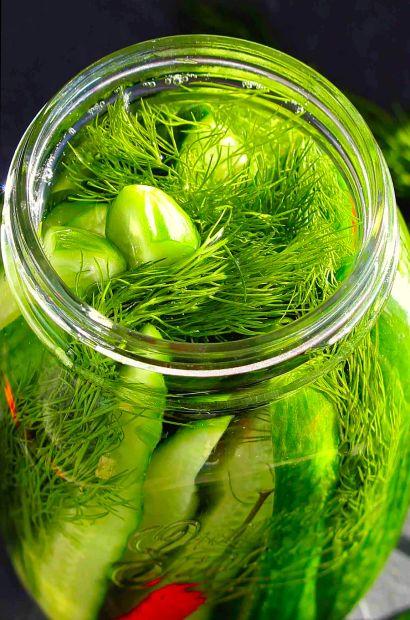How Does Fermentation Differ from Pickling?

Fermented foods like sauerkraut, kimchi, yogurt, and kombucha are gaining popularity due to their health benefits, but what about the classic cucumber pickle?
Fermentation and pickling are both ancient methods of preserving food, yet they often overlap. Some foods are both fermented and pickled, while others fall into just one category. Discover the similarities and differences between these preservation techniques and get inspired to try making your own.

What Does It Mean to Be a Pickle?
A pickle is simply any food preserved in a brine (salt water) or an acid like vinegar or lemon juice. This includes a wide range of foods, such as beets, onions, peppers, and even eggs.
What Is Fermentation?
Fermented foods are preserved and altered by beneficial bacteria. This usually means that the bacteria consume the sugars and carbohydrates in the food, often from lactic acid bacteria, transforming them into other compounds.
The bacteria then convert the sugars into substances like acids, carbon dioxide, and alcohol, which preserve the food and enhance its flavor. So, when you enjoy something like kimchi, you're also consuming the thriving colony of bacteria that helped preserve the cabbage. It’s nature’s circle of life.
Where Fermentation and Pickling Converge
Remember how we said a pickle is simply food preserved in brine? Well, many fermented foods begin the same way—using a brine. That means they’re also considered pickles, but with the added benefit of fermentation. For example, sauerkraut is made by salting cabbage and letting it ferment, and traditional dill pickles are cucumbers fermented in salty water. Kimchi, made from ingredients like cabbage, radish, garlic, anchovies, and chile, always includes salt as its base.
Ever wondered why traditional dill pickles and sauerkraut are so tart, even without vinegar? The answer lies in fermentation. During this process, bacteria produce acids, which give many fermented foods their signature tangy taste.
But not all fermented foods are pickles! For example, you wouldn’t typically consider sourdough bread, beer, or yogurt to be pickles, even though they are fermented.
And: Not all pickles are fermented either! Quick pickles, such as those made by pouring hot vinegar over vegetables, aren’t fermented. These quick pickles are commonly found in many commercial varieties.
The Bottom Line: Fermented foods are packed with proven health benefits, thanks to the presence of good bacteria, and their unique fermentation process brings out complex, rich flavors. Whenever possible, look for artisanal producers who craft pickles the traditional fermented way. Even better, try making your own.
Craving More Pickles?
- How to Make Homemade Pickles
- 15 Quick Pickles to Preserve Summer for a Little Longer
- Terms Every Fermentation Enthusiast Should Know
Evaluation :
5/5



